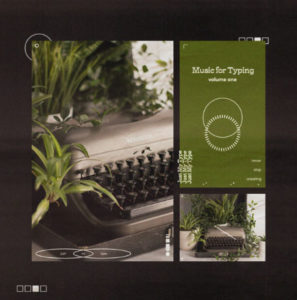I’m happy to announce the publication of the first anthology released by Mars Street Press. It’s a literary journal with stories and essays by my private workshop students and me. Everyone worked so hard to make this book happen. It’s dedicated to my father-in-law, Richard Dale Barrett, who died from COVID-19 in July. My son Travis created the fantastic cover and did the layout. My student, Amelia Dellos, titled it (and took the photo below right). If you’re looking for a book to read, or are shopping for the readers on your gift list, or just want to read more about the book, please click here.
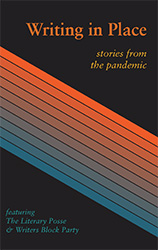
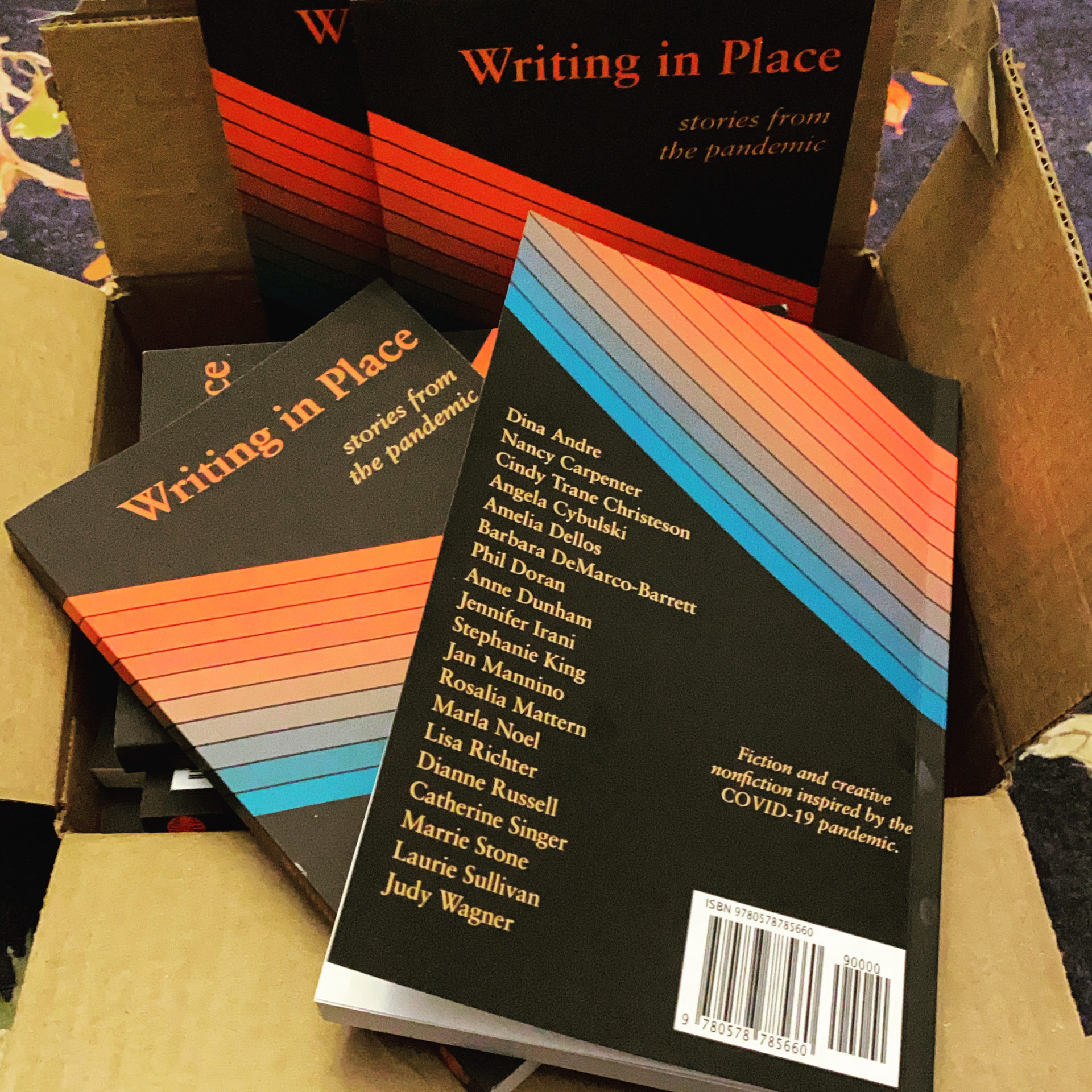
Tag Archives: novelists
Come to The Federal!
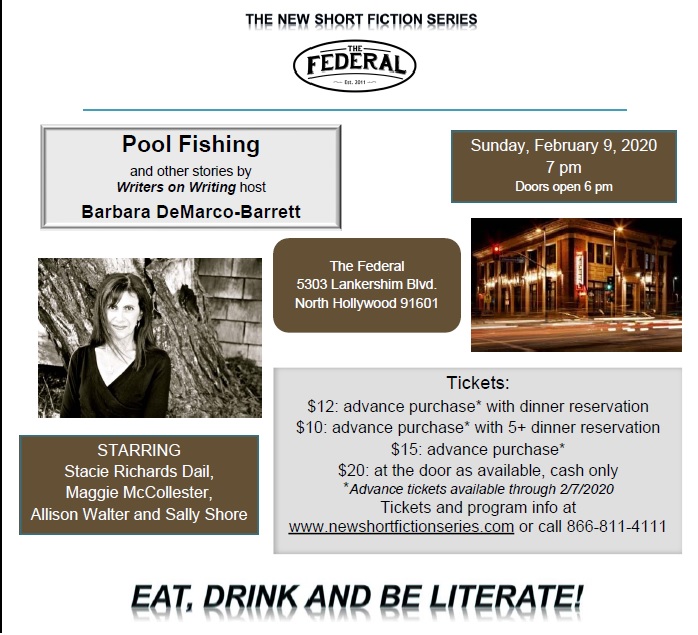
A free essay workshop I’m giving
It will be at the Foothill Ranch library on Sat., Feb 1. Click on the link to see the flyer. Come on down!
Romancing Rejection
Here’s a new essay of mine just published in The Author’s Guild Bulletin, Fall 2019 issue (link at bottom of piece). Take heart, those of you who hate to be rejected as I do.
ROMANCING REJECTION
Outsmarting the turn-down blues
By Barbara DeMarco-Barrett
I love the desert—the minimalist environment, how your eyes can stretch for miles, the hardly traveled roads that go on and on. But I didn’t want my writing life to resemble a desert, and lately it had felt as if it did. Other than publishing an article here and there, I was cruising a long dry spell. All writers have them. But my parched streak had gone on for too long. I began to worry that things would never improve. My novel in progress had reached a roadblock.
I complained to my 24-year-old son. “Maybe I’m no longer a writer.”
As well as being a musician and songwriter, Travis is a logical, rational person who has grown up with a father who is a full-time musician and a mother who has been a freelance writer since before he was born. He’s had a front-row seat to the ups and downs writers and artists go through.
“Of course you’re a writer,” he said. “You had a book published. When’s the last time you read The War of Art?”
I had given him the book a year ago when he needed a dose of motivation, and The War of Art: Winning the Inner Creative Battle is the best motivator I’ve come upon. Whenever I begin to obsess about the publishing business and start to equate the dearth of current publications in my life with my own intrinsic worth, or when my students berate themselves about the same things, it’s time to break out Steven Pressfield’s short but powerful book. That and the Bob Newhart video on YouTube: “Stop It!” It’s a great reminder to shut up and get to work.
Over the two hours it took me to reread The War of Art, Pressfield reminded me that we need to reframe our thinking about art and writing. The major battle for artists of all kinds is the resistance we ourselves create, and that stops us from tapping into our creative selves.
It reminded me of something I already knew but had once again forgotten: If you want something to happen, make it happen.
After spending five years on my novel, I needed more immediate gratification than it was giving me. It was time to send out shorter pieces and make it rain. While focused on the novel, I had continued writing essays and short stories, only to submit them in a scattershot way. I’d send a story out; it would come back with a no, sometimes accompanied by feedback or an encouraging word from an editor, sometimes not. I had more than a dozen unfinished pieces, half-forgotten and growing stale on my hard drive.
I looked through my files to see which pieces were close to being finished, printed them out, then picked a few I felt were good enough to finish and submit. I made a note of anthologies that were calling for short stories, decided that the beginning of one in my reserve file could work as a flash fiction piece (short stories under 1,000 words), and that it was time to unearth a couple of published essays and submit them to journals that accepted reprints. Ditto for a couple of Q&As I wanted to do for literary journals. A friend sent me a notice for a poetry contest with a cash prize, and I entered. Months earlier I’d tried to place a book proposal for a noir anthology and got a not-exactly-a-rejection note in return, suggesting I try the editor again in the future. I did.
For a couple of weeks I dug in hard, polishing pieces that were almost there as well as the book proposal. I would romance rejection and see where it took me.
I re-subscribed to Duotrope.com, a valuable online publishing resource for authors. Every day I searched for another journal that was open to submissions and sent work out: three poems, two essays to journals that accept reprints, a fresh essay to The Ocotillo Review. I wrote, finished or tweaked three short stories and submitted them to the anthologies.
I can’t say how many publications I sent work to, but it was enough to make my eyes blur. I remembered something I’d heard a friend in sales say, that you have to make at least a hundred calls to get five yeses. Marketing your writing is a bit like sales. The more I submitted, I reasoned, the more likely it was that I’d garner a few yeses.
I also did some overdue housecleaning. If there is something to the idea that feng shui works for homes, maybe it applies to creative work as well. I bought expandable files: one for works in progress so I could see what still needed to be done, another for filing completed stories and essays that I had submitted, plus others that had been accepted but not yet published. In yet another file I stashed the embryos of longer projects that I might someday want to do something with.
I did not sell my novel to the movies. But over the next two months, things began to happen. Reprints, stories, an essay were accepted. On the same day the essay was claimed by one literary journal, it was rejected by another. That’s how it goes. Had I only sent it to one journal, the no may have come in instead of the yes. I also signed a contract to edit Palm Springs Noir, an anthology published by Akashic Books, and a project I had wanted to take on for at least a year.
I CAN’T SAY HOW MANY PUBLICATIONS I SENT WORK TO, BUT IT WAS ENOUGH TO MAKE MY EYES BLUR. I REMEMBERED SOMETHING I’D HEARD A FRIEND IN SALES SAY, THAT YOU HAVE TO MAKE AT LEAST A HUNDRED CALLS TO GET FIVE YESES. MARKETING YOUR WRITING IS A BIT LIKE SALES. THE MORE I SUBMITTED, I REASONED, THE MORE LIKELY IT WAS THAT I’D GARNER A FEW YESES.32
I’ve known many talented writers who gave up submitting work almost as soon as they started because they couldn’t deal with the rejection. But in our line of work, rejection is a part of the game. If you can’t deal with it, you have two choices: stop now or develop a thick skin. Because unless you become a best-selling author, a rare status as we all know, you’re going to get rejected, even after you’ve started to get accepted. I developed a thick skin early, yet every so often it wears thin. While I’m an endless encourager of others, I’ve been known to give up too soon, too. So when students or friends say they sent out their story or essay or book-length work a handful of times and got a handful of nos in return, I say that ain’t nuttin’. If editors or agents give you feedback, act on it. And keep on sending out work.
Or as Dennis Palumbo, Los Angeles author and therapist to creatives, says, “Keep giving them you until you is what they want.”
There are many other things I do to revive my writing mojo: I subscribe to journals I want to be published in, buy new books (used books don’t help authors), and support indie bookstores by shopping there. I try to be a good literary citizen by going to readings, writing conferences, book fests. I give back by sitting on panels and interviewing authors for my radio show and print interviews. You have to drum up some good karma for the publishing rain gods to want to help you.
Even in the desert, it does eventually rain.
Barbara DeMarco-Barrett is a writer in Southern California. She is the host of Writers on Writing on KUCI-FM and teaches at Gotham Writer’s Workshop. Her work appears in USA Noir: Best of the Akashic Noir Series and her book, Pen on Fire: A Busy Woman’s Guide to Igniting the Writer Within is in its 13th printing.
Access the entire bulletin here.
Join me for Noir at the Bar
I’ll be reading from a short story. Not sure which one yet. Join me! No charge. A night of dark literary fun
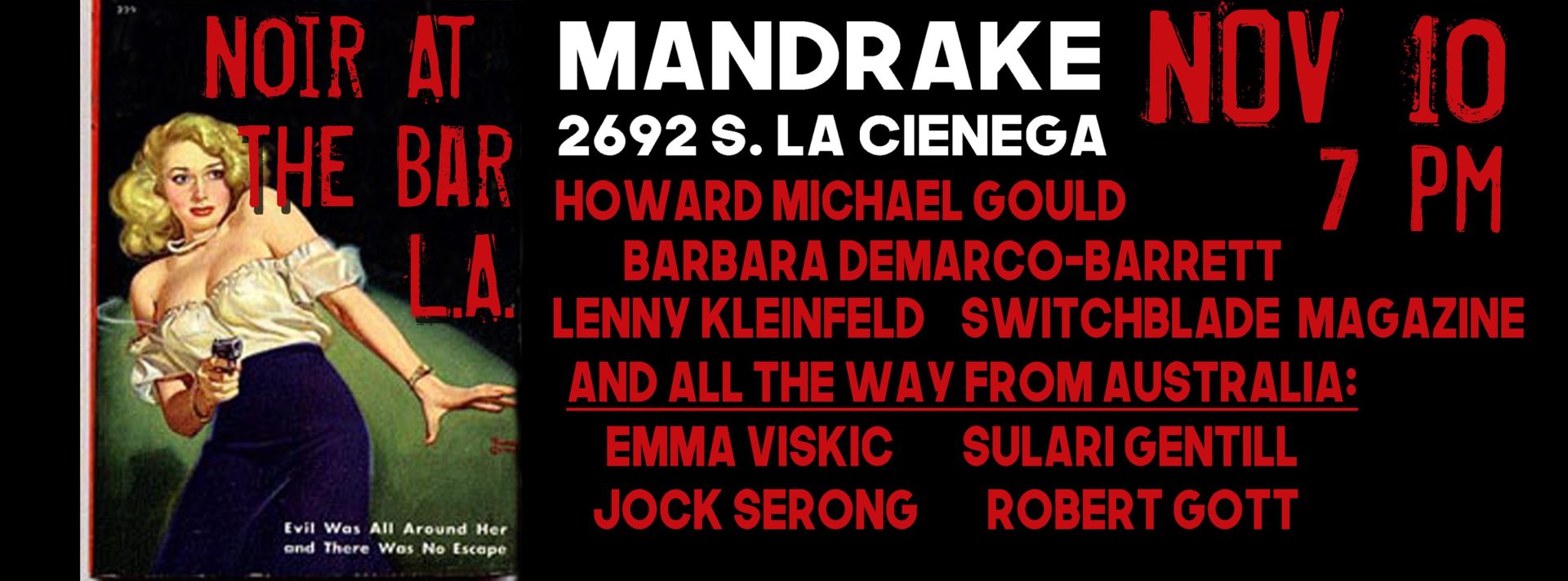
Upcoming Speaker Series events
On Tuesday, July 16, poet Kim Dower will join us for a night of poetry. Kim is former West Hollywood poet laureate and has much to teach about what makes a good poem and how poetry feeds all writing, even if you have no intention of ever writing poetry.
Then, on August 20, Janet Fitch returns along with Leland de la Durantaye, to talk about the art, craft, and business of writing fiction.
I trust both events will help to make your summer a gratifying literary season. Visit the speaker series page for more info and to sign up. Seats are limited. Hope to see you there!
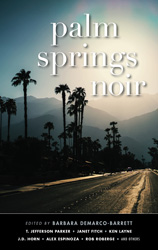


 Support Indie bookshops and this site by purchasing books through my BookShop
Support Indie bookshops and this site by purchasing books through my BookShop
